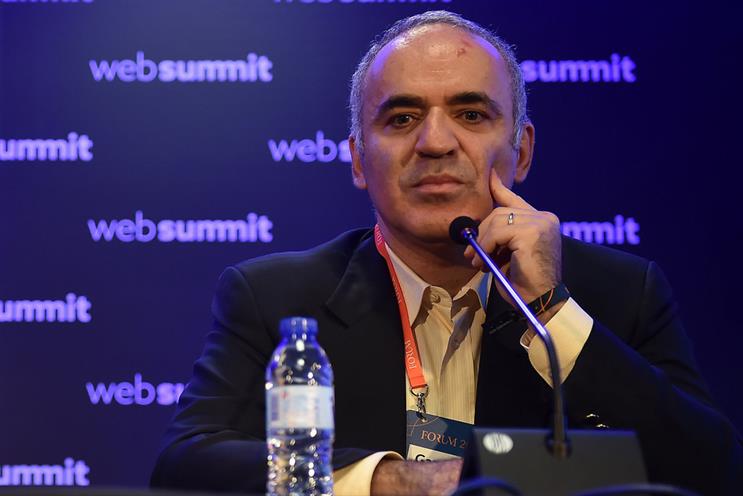
"I’ve been saying that artificial intelligence machines will not make us obsolete, but complacence might," Kasparov told journalists at a press briefing at Web Summit last week which he was attending in his capacity as Avast security ambassador.
Humanity has pursued technological advance for better lives, for productivity, entertainment, joy and benefits. But, he said, we have gradually reached a point where risk reduction has become our greatest priority.
"We have been losing this delicate balance of risk and rewards. We don’t want risk but we want rewards which means we end up printing money. Because there is no other way to come up with disruptive technology in a free market if you want risk to be eliminated," Kasparov said.
While speaking at Apple a few months ago, Kasparov told his audience the difference between innovators over time can be put this way: "Steve Jobs wanted to come up with the big idea that would kill IBM. A would-be Steve Jobs today is trying to come up with the big idea to sell to Apple."
This shift from the pursuit of the big idea for something incremental and monetisable is detrimental to humanity's future.
"I’m not happy we abandoned space exploration. It’s not just about having a manned expedition to Mars to walk in the red dust of the planet, it's about inventing things to get there. From the history of human civilisation, we know the greatest discoveries were made in the periods of greatest exploration. We are losing this period of pioneers and explorers," Kasparov said.
Rather than AI destroying humanity, he hopes AI will help it recover this capacity and hunger to explore.
"We can see how talent shifted from space engineering in the 60s and 70s to financial engineering. I'm hoping that AI will kill enough jobs in that sector to move the talent back to space engineering," he said with a wry grin.
Jokes aside though, AI will be detrimental to humanity if we try to compete with it on finite and set tasks where the rules have been established.
"My match against Deep Blue has turned into a legend. And now we're talking about AI, people go back to the match as the dawn of the era of AI. Let me say this. Deep Blue wasn’t intelligent at all, it was a powerful monster parallel processor capable of making up 200 million positions per second. That's one billion positions every five seconds. It was not intelligent, it was as intelligent as your alarm clock. Although, losing to a $10m (£7.6m) alarm clock did not make me feel any better," Kasparov said.
But what he did learn from the two matches he played against the machine is that any game, no matter how complicated, is vulnerable to brute force by a machine algorithm.
"At the end of the day, any game, whether it’s chess, Go, it’s all closed systems. Humans make mistakes and against machines, you make one mistake, one inaccuracy, and you're out of business. 'Steady hands', makes machines unbeatable," he said.
Anything that is quantifiable, machines will eventually outperform humans, Kasparov said.
"But, I always tell people not to make [an] automatic transition from the success of the machine in closed systems to open-ended systems. Because, while machines can solve all the problems, beautifully and brilliantly, machines still don’t know how to ask questions or how to identify what problems are relevant," he concluded.




.jpg)
.jpeg)
